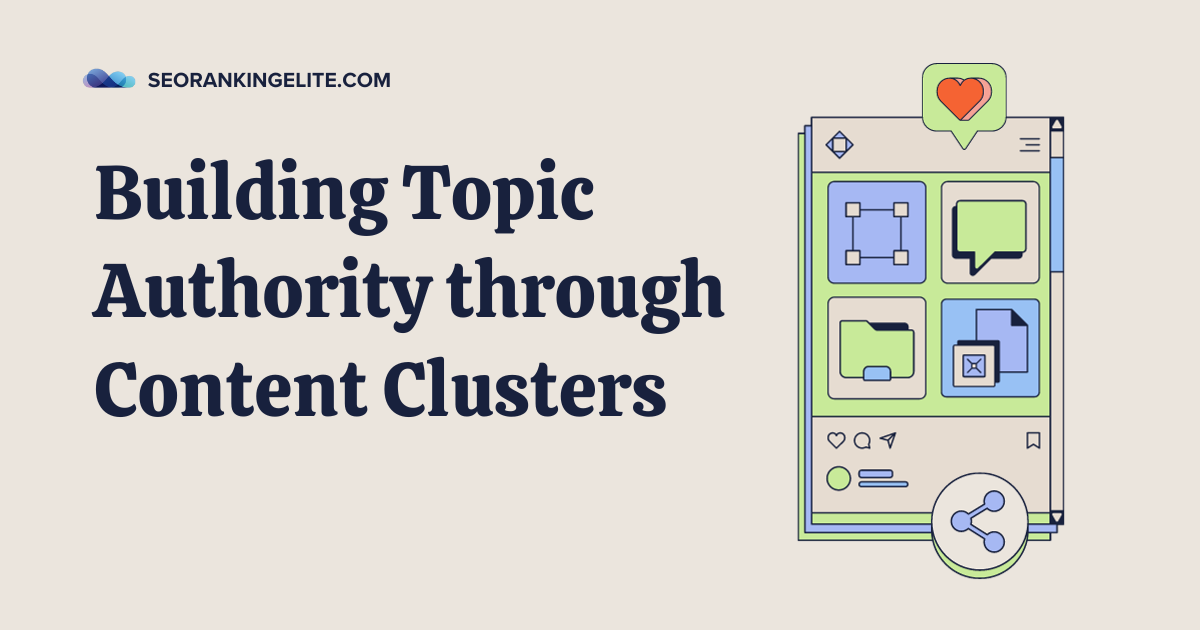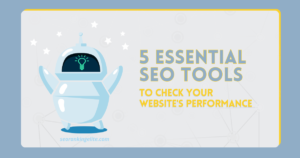Building Topic Authority through Content Clusters
Welcome to the exciting world of building topic authority through content clusters! If you’re looking for a game-changing strategy to boost your website’s credibility and visibility, then you’ve come to the right place.
In this blog post, we’ll dive deep into the concept of content clusters and how they can propel your online presence to new heights.
Imagine having a comprehensive hub of information on a specific topic that not only caters to your audience’s needs but also establishes you as an industry expert. That’s exactly what content clusters do.
By creating pillar content surrounded by related subtopics, you create a web of interconnected knowledge that search engines love and users find invaluable.
But it doesn’t stop there! We’ll explore strategies for linking cluster subtopics effectively, interlinking techniques that keep users engaged, and ways to measure the success of your content clusters.
So buckle up and get ready to unlock the power of content clustering for authority in today’s digital landscape!
Creating Pillar Content
Building a strong foundation is crucial when constructing anything, and the same principle applies to content clusters. Enter pillar content – the cornerstone of your cluster strategy.
Pillar content serves as a comprehensive and authoritative piece on a specific topic. It covers all essential aspects, providing in-depth information that leaves readers craving for more. Think of it as the main hub from which smaller subtopics branch out.
When creating pillar content, it’s essential to choose topics that are not only relevant but also align with your target audience’s interests and pain points. Conduct thorough research to ensure you’re offering unique insights and value.
To optimize your pillar content for search engines, focus on incorporating relevant keywords naturally throughout the text. This helps search engines understand what your page is about and improves its visibility in search results.
Furthermore, make sure your pillar content provides a seamless user experience by utilizing engaging visuals such as images, infographics, or videos. These elements enhance readability and keep users hooked while digesting valuable information.
Remember that while creating pillar content may require more time and effort initially, it sets the stage for effective clustering by establishing authority within your chosen niche. So invest in crafting high-quality pillar pieces that serve as pillars of knowledge!
Linking Cluster Subtopics
One of the key strategies in building topic authority through content clusters is linking cluster subtopics. This involves connecting related pieces of content within your website to create a web of interconnected information.
By linking cluster subtopics, you can guide users through various aspects of a broader topic, providing them with more comprehensive and valuable information.
This not only improves user experience but also helps search engines understand the relevance and depth of your content.
When linking cluster subtopics, it’s important to use descriptive anchor text that accurately represents the linked page’s content. This allows both users and search engines to easily navigate between different parts of your content cluster.
Additionally, consider using contextual links within your blog posts or articles to further enhance the connection between related topics. These internal links help establish topical relevance across different pages on your website.
Furthermore, don’t forget about external links. Including relevant outbound links to reputable sources can provide additional credibility and context for your readers while signaling to search engines that you’ve done thorough research on the topic.
Remember that proper organization and structure are crucial when creating content clusters. Ensure that each piece fits logically into its respective subtopic within the larger pillar content framework.
By effectively linking cluster subtopics, you can create a cohesive network of information that enhances user experience, demonstrates expertise in your field, and signals authority to search engines.
So be intentional with your internal and external link placements as you build out your content clusters for maximum impact!
Interlinking Strategies
Interlinking is a crucial component of building topic authority through content clusters. By strategically linking related pieces of content within your website,
You not only help users navigate through your site but also signal to search engines that these pages are interconnected and should be considered as a collective entity.
One effective interlinking strategy is to use descriptive anchor text when linking between cluster subtopics. Instead of using generic phrases like “click here” or “read more,” opt for specific keywords that accurately describe the topic of the linked page.
This helps both users and search engines understand the relevance and context of the linked content.
Another strategy is to create hub pages or pillar posts that serve as central resources for a particular cluster. These pillar posts contain comprehensive information on a specific topic while also providing links to relevant cluster subtopics.
This approach not only enhances user experience by offering them a one-stop-shop for all related information but also strengthens the overall topical authority of your website.
When interlinking, it’s important to consider the hierarchy and structure of your website. Place links strategically in prominent locations such as navigation menus, sidebars, or within relevant paragraphs of text.
However, avoid excessive linking which can confuse users or dilute the impact of each link.
Additionally, regularly audit and update your external links and internal links as new content is created or old ones become outdated. Broken links can negatively affect user experience and harm SEO efforts.
Utilize tools like Google Search Console to identify any broken internal links on your site and promptly fix them.
Implementing effective interlinking strategies plays a vital role in building topic authority through content clusters. By using descriptive anchor text, creating hub pages, considering site hierarchy, and conducting regular audits.
You can enhance user experience while signaling to search engines the cohesive nature of your content ecosystem.
Maximizing User Engagement
User engagement is the key to building topic authority through content clusters. When users are actively engaging with your content, it shows search engines that your website is a valuable resource in your niche. But how do you maximize user engagement?
First and foremost, create high-quality and informative content that resonates with your target audience. Make sure it addresses their pain points, answers their questions, and provides value.
Next, optimize your content for readability by using clear headings, subheadings, bullet points, and short paragraphs. This makes it easier for users to scan and digest the information.
Additionally, encourage user interaction by including calls-to-action (CTAs) throughout your content. These can be as simple as asking readers to leave a comment or share the post on social media.
Another effective way to boost engagement is by incorporating multimedia elements such as images, videos, infographics, or interactive tools into your content. These visual aids not only make the information more appealing but also keep users engaged.
Don’t forget about social sharing buttons! Make it easy for users to share your content across various platforms so that others can discover and engage with it too.
By implementing these strategies consistently across all of your cluster subtopics, you’ll see an increase in user engagement which ultimately leads to higher topic authority in search engine rankings. So start maximizing user engagement today!
Measuring Cluster Success
Now that you have a solid understanding of how to build topic authority through content clusters, it’s time to assess the success of your efforts.
Tracking and measuring the performance of your clusters is crucial for determining whether they are effectively boosting your website’s authority and driving meaningful results.
i. Organic search traffic
One key metric to monitor is organic search traffic. Are the cluster subtopics generating an increase in organic traffic to your website? Use analytics tools like Google Analytics or SEMrush to analyze the traffic data and identify any spikes or trends related to specific subtopics within your clusters.
ii. Backlinks
Another important measure is backlinks. Are other websites linking back to your pillar content or cluster subtopics? The more high-quality backlinks you earn, the greater signal it sends to search engines about the relevance and authority of your content.
iii. Engagement
Engagement metrics such as average time on page, bounce rate, and social shares can also provide insights into how well users are engaging with your content clusters.
If users are spending more time on pages within a particular cluster, it indicates that they find value in exploring related topics.
iv. Keyword Ranking
Additionally, keep an eye on keyword rankings. Are the target keywords for each pillar content and cluster subtopic climbing up in search engine results pages (SERPs)?
Higher rankings indicate that search engines view your site as a credible source of information on those topics.
v. Review Matric
Regularly reviewing these metrics will help you gauge the effectiveness of your content clustering strategy and make necessary adjustments if needed.
Remember that building topic authority takes time; don’t expect overnight success. Stay patient, consistent in producing quality content, and adapt based on data-driven insights.
RELATED BLOGS YOU MIGHT LIKE :
If you want to read other blogs about SEO, you can read more on SEO Ranking Elite.
Need SEO help? Contact SEO Ranking Elite, your premier SEO service agency. Partnered with the Madex Group and Madex Academy, we deliver effective strategies for SEO success, targeting businesses in Malaysia and Singapore.





